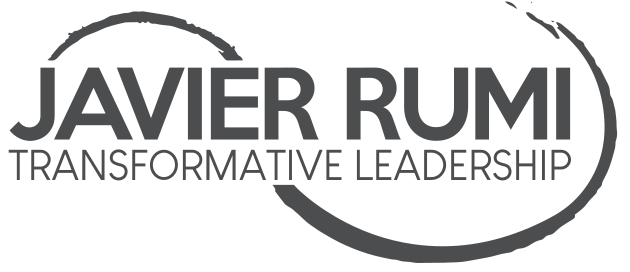“Living doesn’t cost much, but showing off does.” Jeffrey D. Sachs
Money is not useful in itself or for itself. If right now you have 1,000 dollars in your hand, it doesn’t make you happier. It is what it means for you at that moment, what it could buy for you. Also, there are a lot of things money does not buy.
In my experience, most people in the world have or had worries about money at certain moments. However, money worries are not limited to finances or financial crises in the general economy. Some people are always worried about money, whether they don’t have, miss to have, or could eventually loose.
What is at the base of the “worrying for money”? You see, a lot of that depends on what money means to you.
If you consider this possible event: Your income and net worth are decreased by 30 percent. What would that mean to you?
So, What does money mean to you?
Reflect on the afterthought of your answer
There could be 5 usual beliefs about what money could mean to you (not definitive or exhaustive list, I think)
- Status/Prestige You could think or “feel” that the amount of money you have defines your status. At least among people you care or respect their opinions. You look at life with an agonistic approach with moeney as the mesureing stick. People with more money are winning and with less are looing; the one with Most is the winner and the ones with less than… are loosers. And when happens that You perceive yourself as loosing: you could see yourself climbing a ladder, and people stepping faster, higher…a re steping on your fingers, cheeating, bullying, etc, etc. The amygdala can show you fancy things here. Also, if you are “winning” you are continually risking to “fall”. You think about yourself in therms of A Winner or a Looser. It is coomon to feel self humiliated or proud, jealous, suspicious or contempt, depending on the money you and others have, or seem to have.
What you buy reflects your status. The car you can not afford, the labels on the clothing that is over-priced vs. your real finances. You want to push yourself to keep up with the Blackmore, who never invite you over anyway, or even care.
- Your Self-esteem. It is lightly related to status. You could be relating the money you have with who you are and to how much you are worth, as a human being. You may feel good about yourself when you are making as much you perceive You should making. Also, you may feel bad about yourself when you make less than you think you should. When you lose money, you feel anxious, afraid, and eventually guilty. You relate “success” as a human being to the 0s in your bank account or your current income. You find the way to motivate yourself to work extra long hours doing unrewarding things to think better about your. If decision you made on investments or expense, tunr out to not be “good” you may feel bad and not smart enough by having taken that “wrong” decision. Eventually you may dwell on those decisions. Furthermore, you could push yourself to have objects of status to advertise the esteem, of yourself, like explaining how mych you are worth.
- Security. Some people could think of money as the mean to get peace of mind. At a deeper level of analysis this displays “I am able to take charge of things if anything bad happens”. You may worry about the money that you will need in case you lose your job, or you get sick. You worry about enduring your money and one-day facing retirement with only Social Security or a 401K to live on. You tend to keep money, get upset when your significant other spends “too much,” or when “was not needed”. Eventually, you get anxious after purchase somethign, or you worry about your investments, all the time and without ‘logic”. You value and like “insurance” and you worry thinking if you have enough of it. You may get involved in thought like “If I lost this money, how could I to take care of my kids?, how could I pay thier tuitions?”. At the base this is equating your needs and the ones of your family with materialism. Finally, people on this group become so focused on money as security, that they disregard other important sources of security, like having a heatlhy life style, good family relationship or a meaningful life.
- Motivation/Motives. Regardless of how much money you have (or you dont have) you think (consciously or uncosciuolsy) that you need to be affected about money to motivate yourself to work harder. You set financial goals, and then, when you reach them, you experience momentary satisfaction as you raise the standard even more. And then… inevitably our friend Hedonic Adaptation shows up and… there you go again. It is a continuos chasing after inclreasing expectations, decided or imposed for yourself, by yourself. Deeply, between you and you, to the question: What will be enough to have me satisfied? the only answer is “More.” You can neveQuote by Eric Hoffer: “You can never get enough of what …. https://www.goodreads.com/quotes/175019-you-can-never-get-enough-of-what-you-don-t-needr get enough of what you dont need. You may get a lot, but not “enough”
At a Psychological level, it could also happen that You think that becoming satisfied will lead to laziness. This is a good one for me, as I (over?) value hard owrk and long term, challenging work. If it doesnt make me suffer, I dont value it. You may also link becoming comptempt with losing your edge, maybe becaming professionally blunt, or becoming hippie, conformist and complacent person. You may even “fear satisfaction” consciously or unconsciously. Finally, it is hard to truly live in the present moment, because you are running to the next challenge.
- Utility/Service. You are smart and pragmatic about money as you see it as a currency able to buy things. Money is what you use to exzchange your knowledge to someone else, or viceversa. You use it to get experiences, outcomes, or assets and goods. Your buying process might be based on real needs, and so you can be as satisfied eating pizza al banco as dinning in a super cool lounge. Or happier with the bike you bought than the car you got. Usually, you dont give a funcy about what other people think focusing on what you really enjoy. When you buy something, for instance, a car, you may think about how comfortable, useful for you will be, and less about how others might evaluate you driving “that” car. You don’t push yourself to buy things you don’t need or to take risks you dont want. Frequently, people on this group value having the time to enjoy their life, investing on their dreams, and their strngths, frequently to improve life’s of others. You have a decent distribution of time to play, time to work, time to sleep. These are “utilities” in your mind, and money is a way of purchasing them.
So, which of these five mindsets do you have about money? If you lost — or gained — more wealth, would it be filtered through the mindset of status, self-esteem, security, motivation, or the utility?
It’s clear which mindset is the most rational, the most balanced, the most flexible. Which one you truly have. In my experience with clients, there’s always combination or at least a main theme influenced by one or more of the other types.
Have you lost the perspective that money is simply a currency?
It buys some things. It costs something to make it.
Taking risks, going into debt without need, keeping up with others, beating people in a race, are Real sources of stress.
Are choices you do not (necesarily) have to make.
Money is not useful in itself or for itself. If you have right now 1,000 dollars under your nose, that doesn’t make you happier. It is what it means for you at that moment, what it could buy for you.
Also, there are a lot of things money does not buy.
What about those things that are free. Think about them. What could you do today, the coming week=, that is free?
What could be enjoyable, meaningful?
Spend
a lot of time with what is free and then, if you need more, get some money and spend some money. And then come back to what is free. What if that is freedom?
References:
“Living doesn’t cost much, but showing off does” – NZ …. https://wealthandrisk.nz/showing-off/
Quote by Eric Hoffer: “You can never get enough of what …. https://www.goodreads.com/quotes/175019-you-can-never-get-enough-of-what-you-don-t-need



Recent Comments